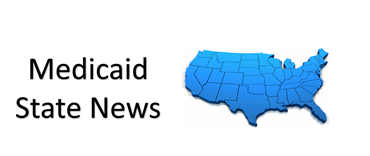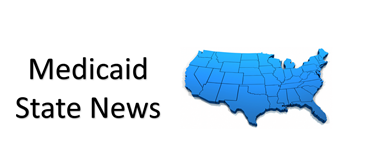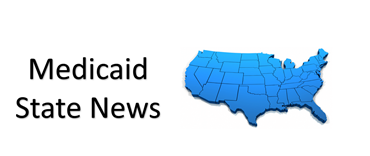MM Curator summary
The new HHS administration has been ordered to review the Public Charge rule designed to reduce welfare spending for immigrants.
The article below has been highlighted and summarized by our research team. It is provided here for member convenience as part of our Curator service.
— But what might happen next is complicated, experts say
WASHINGTON — President Biden’s executive order asking three federal agencies to review the “public charge” rule drew plaudits from several health policy experts, while others decried the move as a step in the wrong direction.
The public charge rule, part of the Immigration and Nationality Act, was issued in October 2020 by the Department of Homeland Security. It states that immigrants who are applying for a permanent residency “green card” or for citizenship will be negatively affected on their applications if they have used public programs such as the Supplemental Nutrition Assistance Program (SNAP), Medicaid, or Temporary Assistance to Needy Families for more than 12 months in a 3-year period prior to applying.
Several states sued over the rule, claiming it was unfair, and two courts issued injunctions preventing its implementation; both were eventually lifted by the Supreme Court, although the suits themselves remain active in the lower courts.
Biden Signs Executive Order
On Tuesday, President Biden signed an executive order directing the Justice, State, and Homeland Security departments to “review all agency actions related to implementation of the public charge ground of inadmissibility” and consult with other departments, including Health and Human Services, when considering the rule.
According to the order, the review should “consider and evaluate the current effects of these agency actions and the implications of their continued implementation,” identify appropriate actions to take, and recommend ways to “clearly communicate current public charge policies and proposed changes, if any, to reduce fear and confusion among impacted communities.”
“I’m not making new law; I’m eliminating bad policy,” Biden said. President Trump, he continued, “issued executive orders I felt were very counterproductive to our security, counterproductive to who we are as a country, particularly in — in the area of immigration. This is about how America is safer, stronger, more prosperous when we have a fair, orderly, and humane, and legal immigration system.”
Abner Mason, founder and CEO of ConsejoSano, a tech startup specializing in health equity and multicultural patient outreach for Medicaid plans, predicted that Medicaid will see an uptick in enrollment following Biden’s order, and that providers will get more Medicaid patients. Many immigrants seeking permanent residency or citizenship are thought to have avoided signing up for Medicaid, for fear of jeopardizing their applications.
But he noted that states are temporarily barred from screening Medicaid enrollees carefully during the pandemic. Those new enrollees may eventually face a different jeopardy, once states are again allowed to restrict eligibility. States may need to tighten their fiscal belts and their Medicaid rolls could be an inviting target for cuts.
Immigrants and the Fiscal Burden
Robert Rector, senior research fellow for domestic policy at the Heritage Foundation, a right-leaning think tank here, expressed disappointment with Biden’s order. “The general idea of the rule was a good idea,” even though it’s often misrepresented, he said in a phone interview. “The general thrust of that rule — although the bureaucracy made it exorbitantly complicated — is that as a society we want to be bringing in immigrants who aren’t going to be a fiscal burden for the U.S. taxpayer.”
“What people really don’t understand is that the U.S. has a very large government and it gives a lot of benefits and services; the average household gets over $30,000 a year in benefits and services from the government, including Social Security and Medicare and education costs, routine services like highways and sewers, and means-tested welfare” programs like Medicaid, the Children’s Health Insurance Program, and food stamps. “The sum of those expenditures is over $1 trillion a year,” Rector said.
“Libertarians don’t like me because I don’t want to destroy this welfare system — I believe there is purpose to supporting lower-income people and disadvantaged people to try to help them succeed in society,” he added. “But you can’t do that for huge inflows of people from abroad…. If you have a finite number of people that you want to let in, why would you not want to let in educated people who are going to be fiscal contributors?”
There aren’t a lot of numbers on how many people declined to enroll in programs such as Medicaid or food stamps due to the rule, Rector added. “I don’t think it had an operational effect because it wasn’t around very long … and they managed to make it very complicated.”
But what evidence that did appear suggested the rule may have had some effect, according to Shelby Gonzales, director of immigration policy at the Center on Budget and Policy Priorities, a left-leaning think tank here.
“There is a lot of anecdotal evidence that suggests that people have gone without Medicaid and other important supports out of fear that enrolling would harm their loved ones,” she wrote in an email. “The Urban Institute found that 31.5% of adults with low incomes in families that include children and at least one immigrant reported that they, or someone in their family, avoided participating in a benefit program in 2019 because of concerns about how benefit receipt would affect immigration status.”
Gonzales lauded the executive order as “an important first step to address the fears people have,” but added that “a lot more work will need to be done to address the damage of this rule.” Among other actions, “the federal government should launch a comprehensive outreach campaign aimed at addressing the concerns people have and letting them know it’s safe for them to access benefit programs for which they are eligible,” she said.
Rachel Garfield, PhD, co-director of the Program on Medicaid and the Uninsured at the Kaiser Family Foundation here, noted in an email that “in recent years we have seen increases in the uninsured rate among the Hispanic population, which could reflect the effects of the public charge rule. In terms of how the change in administration will change these recent trends, it remains to be seen, but we do know that word of mouth and informal information networks are important source of information among this population, so it will somewhat depend on how messaging about a shift in direction occurs.”
Ripple Effects
Kelly Whitener, JD, associate professor of the practice at the Georgetown University Center on Children and Families, agreed that the rule influenced more people than those directly targeted. “For example, children’s use of Medicaid/CHIP is not counted in a public charge determination if that child were to later apply for a green card, nor is it counted in the parent’s application, and yet, we saw declines in Medicaid/CHIP participation among children in immigrant families,” she said in an email.
While the Biden order “is a very meaningful and important step in the right direction, it will take a long time to undo the damage that has been done over the last 4 years,” Whitener said. “The public charge rule changes made by the Trump administration are still in effect and will remain in effect until new rules replace them, which will take months if not years.”
In the meantime, the rule continues to be tied up in court, explained Sonya Schwartz, JD, a consultant with Protecting Immigrant Families, a campaign composed of several organizations working on immigrant rights issues. A total of 11 lawsuits — including those in which the injunctions were issued — have been brought against the rule, and the Supreme Court may eventually take up one or more. “Yesterday, a district court in Illinois asked for the Department of Justice to come in” and explain its plans in a case there, “and on Feb. 19th, we’ll know a little more about what the department plans to do.”
One possibility is for the department to drop its earlier requests for Supreme Court review of lower court rulings against the Trump administration rule. Or the Supreme Court — which is having its next case conference on that same date, Feb. 19 — could simply decide not to hear them, she said.
Another option is that the Department of Homeland Security could issue an interim final rule on the subject “due to the pandemic and all the fear, and how this rule threatens to undermine our vaccine efforts and making sure people get tested and treated for COVID,” said Schwartz. “So I think there are a lot of options where we could get policy change a little bit faster, either through the courts or the agency acting quickly, but we just don’t know yet.”
Joyce Frieden oversees MedPage Today’s Washington coverage, including stories about Congress, the White House, the Supreme Court, healthcare trade associations, and federal agencies. She has 35 years of experience covering health policy. Follow
Clipped from: https://www.medpagetoday.com/publichealthpolicy/medicaid/91058










